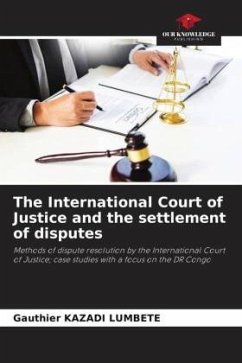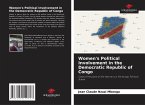This work provides an explanatory table of the mechanisms by which States wishing to submit a dispute to the International Court of Justice must follow in order to obtain a decision from the latter, but also the procedure to be followed by international organizations entitled to request an opinion from the International Court of Justice.The world being in perpetual change, the relations and interactions that the actors of the international life maintain lead to controversies that give rise to a dispute, the gathered States had decided to grant the competence to the International Court of Justice to decide disputes of this order.The focus on the Democratic Republic of Congo gives to know the various cases which implicated the DR Congo, it is the case in particular of the Hamadou Sadio Diallo case as well as the case of the military activities on the territory of Congo which know a legal autopsy in the present work.This work will be of interest to researchers and professors of law,jurists, lawyers advising politicians, and specialists in international law.








